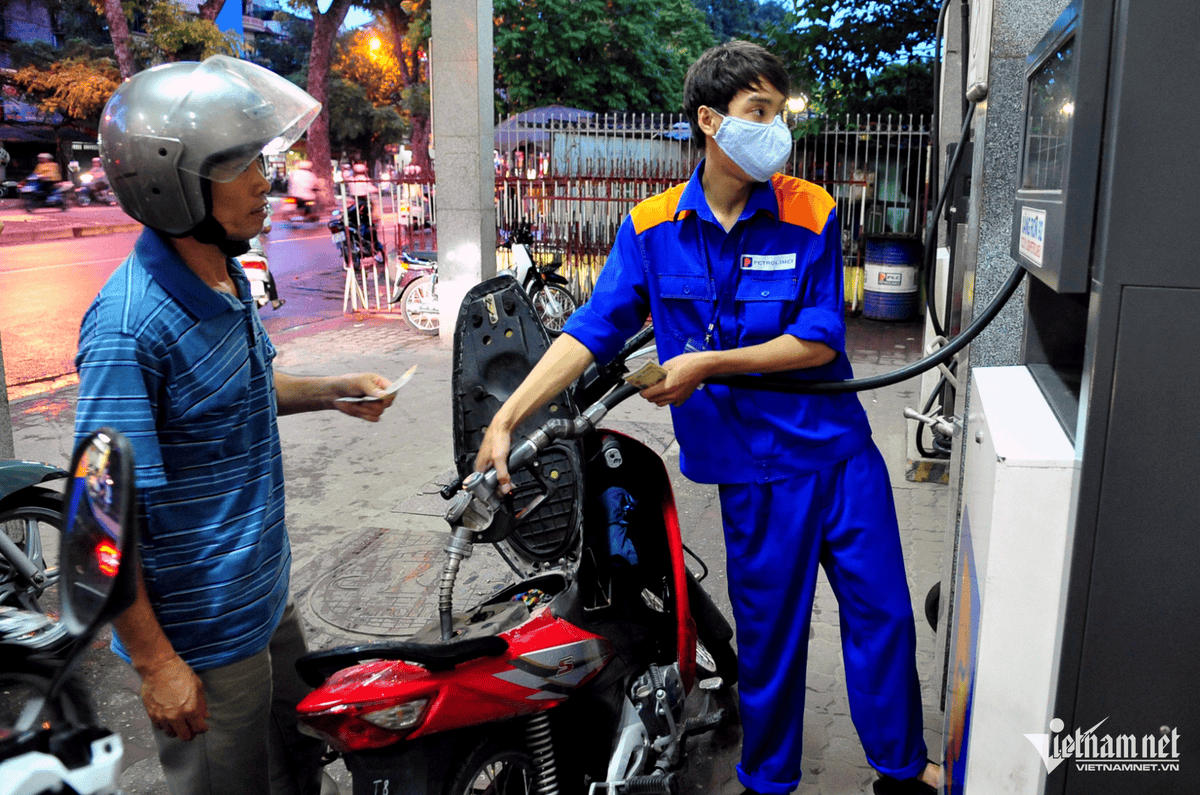
According to MOIT’s Domestic Market Department, to ensure openness and transparency in management and to create societal consensus, the draft decree defines the management objective as contributing to ensuring national energy security.
Regarding the management principle, the market will be regulated in accordance with the market mechanism to ensure harmonization of benefits of the state, petroleum users and petroleum enterprises, while striving to reduce intermediaries in the petroleum supply chain.
The 2025 Petroleum Business Decree draft lays out a formula for petroleum pricing which petroleum distributors and retailers can refer to when calculating retail prices, declaring prices and reporting their prices to appropriate management agencies for supervision.
The stabilization of petroleum prices is carried out in accordance with the provisions of the Price Law 2023 (effective in July 2024), which clearly stipulates the list of goods and services subject to price stabilization, the cases for stabilization, and the measures to implement price stabilization.
The draft decree also states the conditions and responsibilities that major petroleum distributors have to take.
Specifically, to be certified as meeting the conditions to act as major petroleum distributors, businesses must have been operating as distributors for at least 36 months by the time of submitting dossiers to apply for licenses.
The businesses must connect online with MOIT to have updated data on warehouses, the status of total petroleum resources, and to satisfy other requirements.
Additionally, the draft includes the responsibility of maintaining a minimum total petroleum reserve of 100,000 cubic meters per year (excluding aviation fuel). If major distributors cannot meet the requirements for two consecutive years, they will have their licenses revoked.
Also according to the Domestic Market Department, the latest draft has removed many regulations and conditions related to petroleum business. For example, businesses no longer have to keep inventories for five days of circulation. Also, the requirements on storehouses and petroleum quality testing labs, and the regulations on petroleum services have been removed.
In terms of administrative reform, the draft decree has removed the requirement on professional certificates on fire safety and environmental protection. Traders are responsible for complying with regulations on these issues during their business operations.
The draft also eliminates the condition of owning or leasing petroleum transportation vehicles.
Regarding the requirements for enterprises to provide business registration certificates in the application for certification, the process has been "streamlined". Enterprises only need to declare the business registration code in the application form.
The Domestic Market Department emphasized major principles when drafting the decree. First, ensuring harmonized benefits for consumers, petroleum businesses and the state. Second, assigning major petroleum distributors the task of ensuring petroleum product supply for domestic consumption. And third, reducing the State’s intervention in enterprises’ petroleum business activities.
MOIT is urgently finalizing the draft decree based on research and feedback from government members to report to the PM for consideration and decision.
Arguments
The latest draft decree doesn’t reach high consensus among involved parties.
To avoid circular trading and creating many intermediary levels, the draft stipulates that petroleum distributors are prohibited from buying and selling petroleum products from each other, and they can only buy and sell petroleum from major distributors (businesses responsible for ensuring petroleum supply for the market).
However, the tentative regulation has stirred controversy.
The draft decree compilers said the ban, if imposed, will allow major distributors to define the exact volume of petroleum products needed for domestic consumption, so as to plan their petroleum import, and allow state management agencies to define the domestic demand. Petroleum trading is a conditional business field, so petroleum enterprises have to satisfy some certain business conditions.
Meanwhile, many experts have warned that if distributors cannot trade products among each other, this will extirpate the competition in the market and fairness among businesses.
In reply, the Domestic Market Department affirmed that the ban won’t lead to the elimination of the competition in the market. Traders in each market segment are still free to compete with each other. This regulation also creates motivation for traders to develop towards higher market segments.
Because of the controversy, MOIT, in its statement to the government, showed two options – allowing or not allowing distributors to trade petroleum products with each other.
Luong Bang